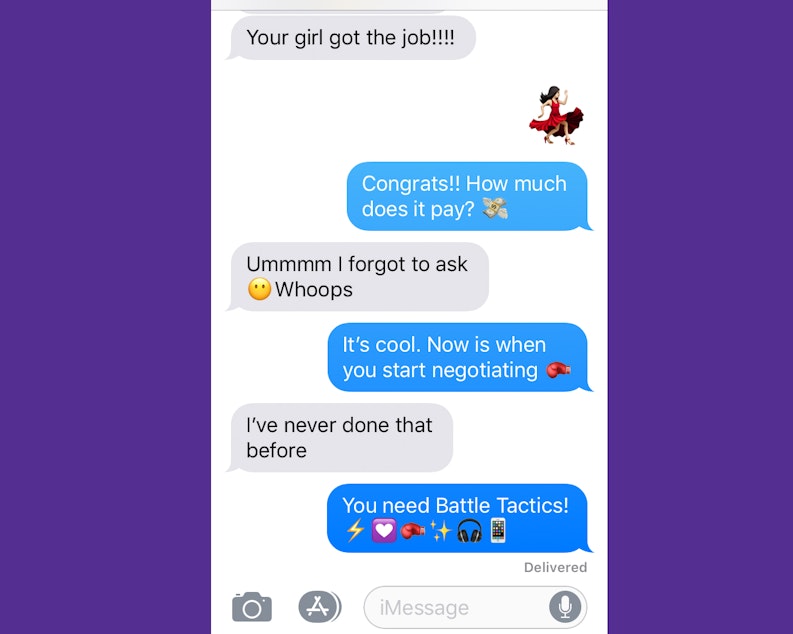Negotiating your salary? This simple question is polite and effective

Recently a KUOW editor received this text from a friend:
“What’s the best way to negotiate salary for a new job? Got an offer that’s a big raise for me, but I think she’ll go higher.”
Our answer: OMG this is what Eula and Jeannie are talking about in their first episode of Battle Tactics For Your Sexist Workplace!
Here are three very good tips from the podcast:
1. Ask what others are making.
Consider this story from Seattle University adjunct professor Ruchika Tulshyan. She was asked to speak at an event—and the organizer asked for her rate.
She countered by asking what the white male speaker for the event was being paid. “It turned out they were going to be making at least five times what I was planning to ask,” she said.
We can’t negotiate the gender wage gap shut. But we can help individual women be prepared to negotiate more.
There is more than one #wagegap. Allow us to demonstrate with Skittles.
“It’s better to be uncomfortable in the moment instead of resenting yourself later,” said Jacqueline Twillie, an equal pay advocate and a negotiation strategist who has coached a lot of uncomfortable women through negotiating their salaries.
2. This simple question. Ask it.
“Often when someone receives a job offer, that first offer isn’t the very best offer,” Jacqueline Twillie told the hosts of our new podcast Battle Tactics For Your Sexist Workplace.
The Harvard Kennedy School found that if a job listing didn’t say the salary was negotiable, the women applicants wouldn’t negotiate. But the men would.
Negotiating is most critical when you are first offered a job. It’s the starting salary that future raises will be based on. More money in the beginning means more money down the road.
You don’t want to leave any money on the table, so just ask, “Is this the best offer you can make?” You’ll increase your chances of getting all the money allotted for that position.
Need to practice? Twillie says call your cable or cell phone provider and ask, “Am I getting the best rate?” It’ll get you used to the idea of negotiations as a conversation, not a battle.
3. Ask the white guy.
Find out what others with your job earn, starting with the white guy.
“I recommend that women, especially women of color go to white male counterparts and ask them, ‘What are you earning, and what are some of the perks you are getting?’” Twillie said.
Some guys won’t feel comfortable sharing their salaries. But Twillie has a strategy for getting men to open up.
Throw out a number and ask what they think. “They won’t come out and tell you exactly what they’re earning, but they’ll say, ‘Maybe you should ask for this.’”
It’s about framing the conversation so you’re just seeking advice.
“One thing research shows women is that we have to play into certain stereotypes, unfortunately,” Twillie said. “When you ask advice you’re playing into his ego. I don’t like that but the research shows it works, so until we have more women at the top we have to navigate this very strategically.”
Battle Tactics For Your Sexist Workplace is a new podcast from KUOW. Yes, your workplace is sexist. Join co-hosts Eula Scott Bynoe and Jeannie Yandel as they laugh/cry and figure out what we can do about it. Listen at kuow.org/btsw or subscribe wherever you get your podcasts. Produced by Caroline Chamberlain Gomez and edited by Jim Gates.



